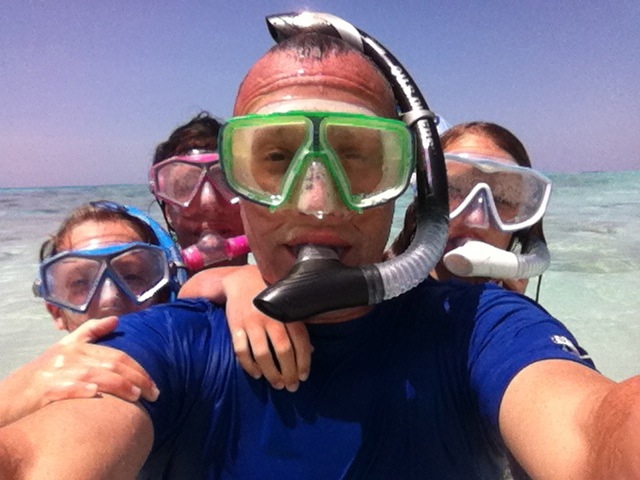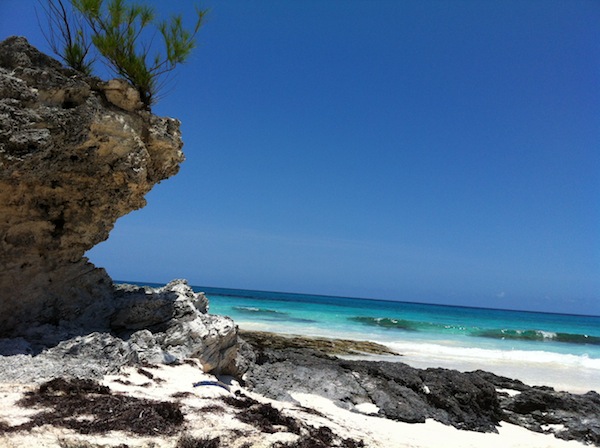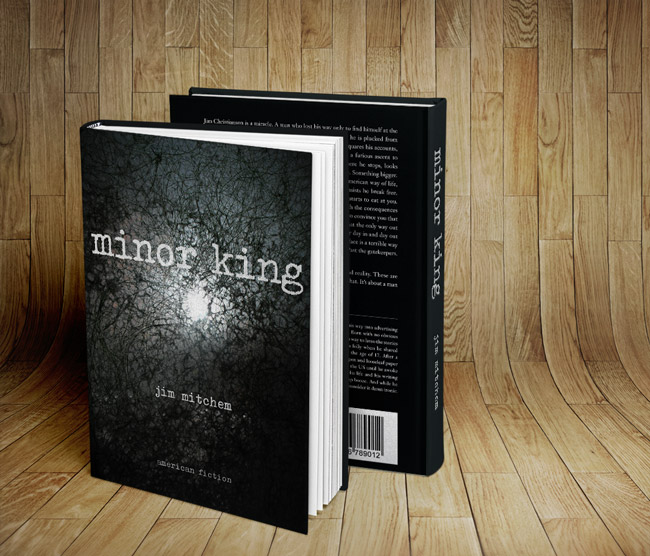
Me and my family just returned from a solid vacation to Great Guana Cay in The Abacos, Bahamas. It was utterly beautiful. Covered in lush, green foliage and sprinkled with wild, fragrant flowers, the island is bordered by pink sand and surrounded by gin-clear water littered with coral reefs teeming with parrot fish. It was as close to paradise as I’ve ever seen with my own eyes. And yes, I’ve been to Hawaii. We saw stingrays, barracuda, turtles, a million types of fish, two octopuses and even a shark – all up close and all from within 100 yards of the beach. Overall, it was a great trip. We stayed more wet than dry, and we loved it. You can check out the Flickr set here.
You may have heard me talk this year about the prospect of moving to Ambergris Cay, Belize. I haven’t really elaborated on why, but will do that one day. Because the why is pretty important. In any event, spending a couple of weeks on a remote island in The Bahamas was a great way to gauge what it might be like to live on one. So I went to Guana Cay with a slightly different mission than the rest of my family. They went there to explore and unwind – I went there to also pay attention to the locals to see how they lived isolated from the rest of the world.
One thing I noticed right away was how absolutely pervasive the Internet is. I didn’t expect there to be any connectivity on the island based on what I’d read leading up to our trip, but quickly realized that most everyone there was online. Sure, the signal was really poor in most places, but from what I could discern, the locals all had Internet access in their homes via satellite. And being connected to the world is pretty huge – as we all know. That said, being connected via the Internet is still not the same as being physically connected to other people. Or even other land masses. Guana is a nine-mile island. To go anywhere you must take a boat then a car and then sometimes a plane. Or another boat. There may be horses involved in some places, too. My point is that being on an island is a complete disconnect, physically. Not that I’m against the idea of disconnection. I disconnect in some capacity every day. It’s my nature. And part of me needs to completely disconnect in order to write anything coherent. When I write, I’m on an island. But until this trip, I’d never really thought about physically being on a island. In the ocean, I mean. And I wanted to get a feel for how people who live on one, do it.
There are about 150 permanent residents on Great Guana Cay – a great mix of African and European heritage and ethnicity. They’re a pretty people. But here’s the thing I noticed after being amongst them for nearly two weeks – hardly anyone smiled. In fact, the only locals I saw smiling were children. Our daughters ended up hanging with a local kid their age for the last few days. He was just like any of their friends here in the States – happy, imaginative, liked the Disney Channel. And he smiled a lot. I later met his brothers, who were all older, and noticed that the older they were, the less they smiled. My wife didn’t notice this phenomenon because most of the adults did employ a veiled smile for the tourists. It was insincere, but it was there. Barely. Keep in mind, this is not a resort island we’re talking about here. No Disney or Sandals customer service protocols to adhere to. It was local peeps all the way. Unfortunately, the thing I noticed most about the locals in this little strip of paradise was that they were all concerned with making ends meet. You could sense it in everything – money was absolutely paramount. And why not? Their gasoline is double what is is in the US. And gasoline is requisite to traveling anywhere you can’t reach by foot. Also their food is at least double the cost we pay here. Because of where stayed in the heart of the settlement, and combined with my wife’s knack for being nice and striking up conversations with strangers, we probably met and engaged with a third of the permanent residents on the island. We learned their names. We waved as we walked around. My youngest daughter, who is a lot like her mother, even took one local merchant cookies every night and pancakes every morning. And yet – not a single one of these people ever asked us our names. They didn’t care. To them we were simply walking dollar signs. They knew that in time, another crop of faceless wallets would appear via ferry to replace us. Don’t get me wrong, these people weren’t mean or nasty, they just really didn’t care about us beyond what we could do for them. And frankly, they couldn’t mask their ambivalence. Unbelievably, when we talked with them about living ‘in paradise,’ too many told us that but for the ferry, they don’t even go near the water. Their children do. Just not the adults. I get it, some people are just rough. Maybe the sea does that to you. Maybe that’s just how all Bahamians are. Or maybe a fabric made of 150 strands of thread is just too tightly knit for anything but the most common elements to surface? Despite its pretty colors.
Since I was a boy, too many people in my family warned me that, “no man is an island.” I believe they thought it was sage advice for a reclusive child who liked to get lost in his own little worlds – detached from others. As I got older, I tried proving them wrong by becoming an island unto myself. I haven’t talked much about the lost years that lead me to quitting drinking and then getting my life back, but one day I will. Just like I will try to explain why the prospect of living on an island is so alluring to me. Only, after returning from our own trip to paradise, and taking a good look into the eyes and hearts of those who already live there, that idea has lost some of its luster.

***

Nichole Brown
Jul 8, 2012
“As I got older, I tried proving them wrong by becoming an island unto myself.” <– Something we have in common. And I guess we both were proven wrong.
The Haze | Obsessed with Conformity
Jul 9, 2012
[…] flying back to the US from The Bahamas recently, I had a window seat on the little 30-seater aircraft. Reaching an altitude of about […]
Finding Neverland: A Story of Belize | Obsessed with Conformity
Jul 27, 2013
[…] our stay, I’d peel back the layers to see something more sinister behind their smiles – like I did in the Bahamas last year – but it turned out that the people of Belize really have no ulterior motive. They’re just […]